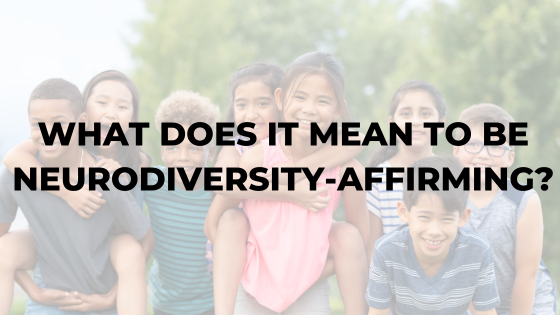I often get the question, “How can I be evidence-based AND neurodiversity-affirming?”
The two things aren’t opposed to each other if we support the right skills.
In this video, I share a clip from my free training and define what it actually means to be neurodiversity-affirming.
It does NOT mean that we have to agree with everything kids want or validate every feeling or thought they have.
But we do need to give them the tools to manage their thoughts, feelings, and emotions.
We also need to help create opportunities to practice these skills, and find the balancing between supporting without enabling.
This video clip is taken from my free online training:
How to be neurodiversity-affirming and evidence based (by supporting executive functioning).
In this free training I reveal:
- Why kids continue to experience anxiety or behavioral challenges, even though they’re going to therapy or have a behavior plan.
- Common mistakes multidisciplinary teams make when teaching executive functioning (and why lists, planners, and behavior charts aren’t working).
- Why kids continue to struggle with problem-solving, and friendships, even though they’re going to therapy and social skills groups.

